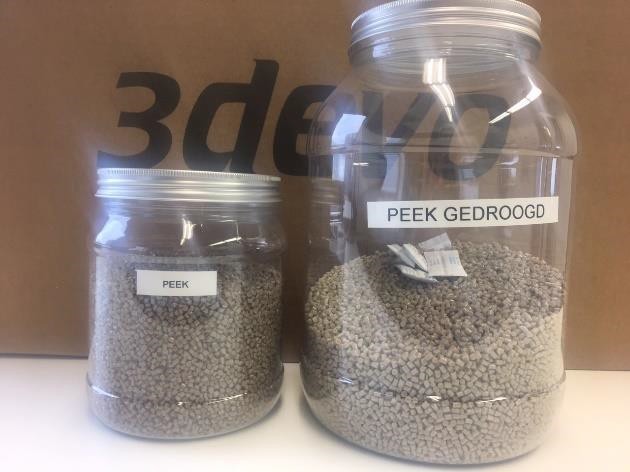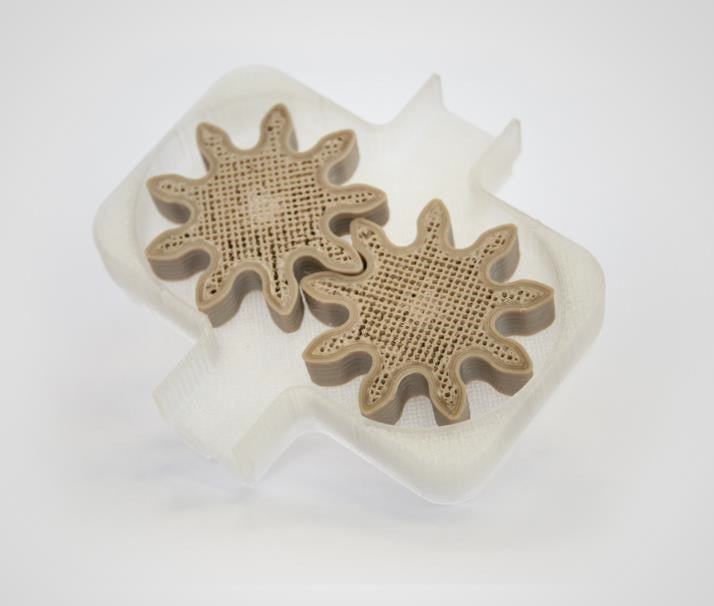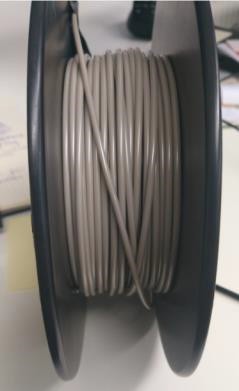
I’m looking at the results of an experiment done by 3devo to extrude PEEK plastic into usable 3D printer filament.
3devo is a Netherlands-based company that produces a desktop filament production system, the NEXT 1.0, that can transform raw pellets into filament by melting and extruding them under precise conditions.
The production of high quality filament is a very tricky business that I’ve written on many times before. As a result there have been few “non-factory” filament extrusion systems that can deliver good results. There are huge issues with quality control and especially humidity that can corrupt the filament.
3devo’s NEXT 1.0 solves some of these issues with its sophisticated design, enabling it to produce ABS and PLA filaments.
But now we understand they’ve been experimenting with PEEK plastic, a highly desirable material for engineers that has driven several 3D printer manufacturers to adapt their equipment to make use of it.

PEEK is a high temperature material requiring 3D printer components to match those hot requirements. But if you can print in PEEK, you’ll be rewarded with very strong parts that are highly heat resistant. This makes the PEEK parts much more useful in a wider variety of mechanical applications.
So how did 3devo do on their experiment? They explain:
Switching from PLA to PEEK presented an unique challenge: building up the temperature inside the Advanced Level extruder to PEEK’s high melting point of 343 degrees.
We went about it in phases, using 2 cleaning compounds as transition materials. First, we slowly raised the temperature from 170 to 300 degrees with the first transition material. Once temperatures had crossed 300 degrees, we switched to the second transition material, and worked on reaching 390 degrees. This was the final stage in our trial, where we could proceed to extrude PEEK.
Because of PEEK’s steady flow and relatively quick cooling properties, extruding it to the desired thickness (2.85mm or 1.75mm) was easier than expected. Winding it on a spool was a different ballgame, though. Due to the strength of the material we had to tape the first part of the filament on the spool, so as to wind it correctly and prevent it from popping out of the spool.
The transition material played a key role throughout our PEEK extrusion process. We first mixed the PEEK with the transition material, and then gradually lowered the temperature range while increasing the amount of transition material in the mix.
As you can tell, it’s not as simple as you might have thought. Producing quality filament is a very complex process.

But in the end, 3devo was able to produce a spool of PEEK, as you can see here.
This opens up some interesting possibilities: PEEK filament is notoriously expensive, and if this system from 3devo works, it could dramatically reduce the price of PEEK usage for 3D printer operators.
Via 3devo

